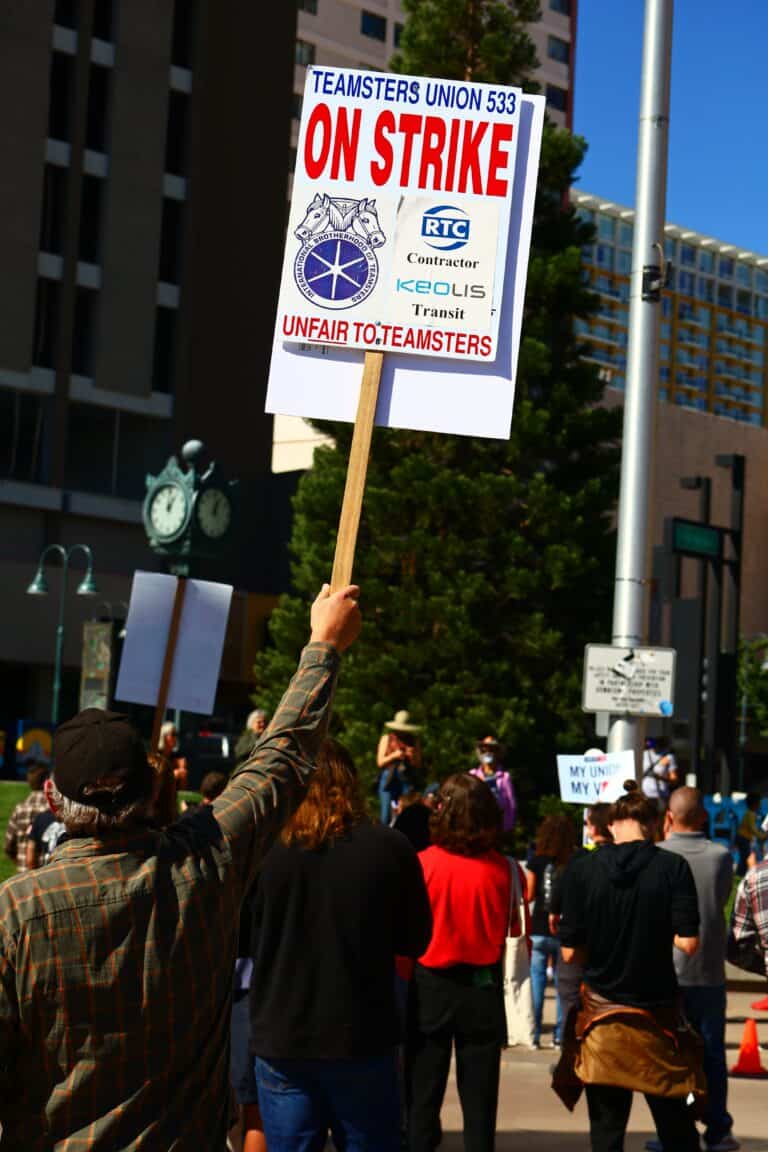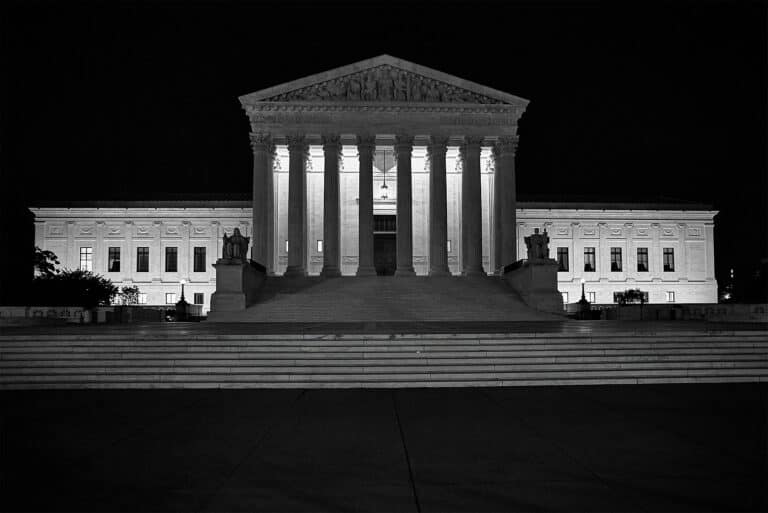
Andrew Strom is a union lawyer based in New York City. He is also an adjunct professor at Brooklyn Law School.
Sometime in the next few weeks, the Supreme Court will issue its decision in Masterpiece Cakeshop v. Colorado Civil Rights Commission, one of the most closely watched cases of this Term. In that case, Jack Phillips, the co-owner of the Masterpiece Cakeshop, argues that the State of Colorado violated his First Amendment rights when it required him to stop refusing to sell wedding cakes or any other product to same sex couples as long as he sells those products to heterosexual couples. At a recent symposium at Columbia University, Catherine Fisk suggested that if the Court rules in favor of Phillips, it may inadvertently create a First Amendment right to strike for public sector workers.
Phillips’ argument is that when he is designing and baking cakes, he is engaging in expression that is protected by the First Amendment. Phillips’ lawyers argue that making a cake for a wedding merits First Amendment protection because making the cake would necessarily express a message about the wedding. Thus, they argue that Phillips has a First Amendment right to withhold his labor because requiring him to offer his services is a form of compelled speech. Notably, the case is also brought on behalf of the corporate enterprise, Masterpiece Cakeshop. The argument is not just that Phillips has an individual First Amendment right to withhold his labor, but that this commercial corporation also has a First Amendment right to collectively withhold labor. Moreover, the argument they make is not limited to bakers or to wedding cakes. Many occupations involve the expression of messages – to take one obvious example, teachers also express messages when they do their jobs. Phillips’ lawyers further argue that because making a wedding cake is protected by the First Amendment, any infringement on that right must be subject to “strict scrutiny,” meaning that the government must prove that the restriction “furthers a compelling interest and is narrowly tailored to achieve that interest.”
As a general rule, the First Amendment does not apply to transactions between private entities. Rather, it only applies when there is some state action. In Masterpiece Cakeshop, the state action was the order issued by the Colorado Civil Rights Commission. So, unless a private employer invokes the power of the state – for instance by seeking an injunction to order workers back on the job – Masterpiece Cakeshop would not necessarily protect private sector workers who are fired for engaging in what is currently an unlawful secondary strike. But, Masterpiece Cakeshop, particularly when combined with Janus v. AFSCME, could potentially be a game changer for government employees. The Supreme Court has long held that public employers are not subject to strict scrutiny when they place restrictions on the speech of their employees. But, this may be about to change. In Janus, the petitioner is arguing that the State of Illinois is infringing on his First Amendment rights by compelling him to pay fair share fees to the union that represents him and his co-workers. For Janus to prevail, the Court will have to accept the argument that restrictions on the First Amendment rights of public employees are subject to strict scrutiny.
If you add the arguments of the petitioners in Masterpiece Cakeshop and Janus together, the result is that the withholding of labor (i.e. striking) can be a form of speech protected by the First Amendment, and any restrictions on speech by public employees are subject to strict scrutiny. To say that restrictions on the right to strike are subject to strict scrutiny does not mean that a state could never limit strikes by public employees, but it does place a heavy burden on states to prove that a ban on strikes is the least restrictive means to further a compelling interest. And, if a state wanted to prohibit all strikes by teachers, it’s hard to see how the state would meet that burden. After all, not every state bans strikes by teachers. According to a 2014 study by the Center for Economic and Policy Research, twelve states allow teachers to strike. And even though the provision of public education is a compelling interest, there is no evidence that the states that prohibit teacher strikes provide their students with a better education. This is not to say that a state could never successfully enjoin a teachers’ strike, but state government officials could no longer simply declare that all work stoppages are illegal.
Until recently, it seemed that any argument for a constitutional right to strike would have to rest on the Thirteenth Amendment. But, if the Court rules for Jack Phillips in Masterpiece Cakeshop, it will necessarily be based on a holding that, in at least some circumstances, there is a First Amendment right to withhold one’s labor. A decision in Phillips’ favor, particularly if coupled with a decision in favor of Mark Janus, may embolden teachers across the country to see whether they too have a First Amendment right to withhold their labor.










Daily News & Commentary
Start your day with our roundup of the latest labor developments. See all
February 20
An analysis of the Board's decisions since regaining a quorum; 5th Circuit dissent criticizes Wright Line, Thryv.
February 19
Union membership increases slightly; Washington farmworker bill fails to make it out of committee; and unions in Argentina are on strike protesting President Milei’s labor reform bill.
February 18
A ruling against forced labor in CO prisons; business coalition lacks standing to challenge captive audience ban; labor unions to participate in rent strike in MN
February 17
San Francisco teachers’ strike ends; EEOC releases new guidance on telework; NFL must litigate discrimination and retaliation claims.
February 16
BLS releases jobs data; ILO hosts conference on child labor.
February 15
The Office of Personnel Management directs federal agencies to terminate their collective bargaining agreements, and Indian farmworkers engage in a one-day strike to protest a trade deal with the United States.